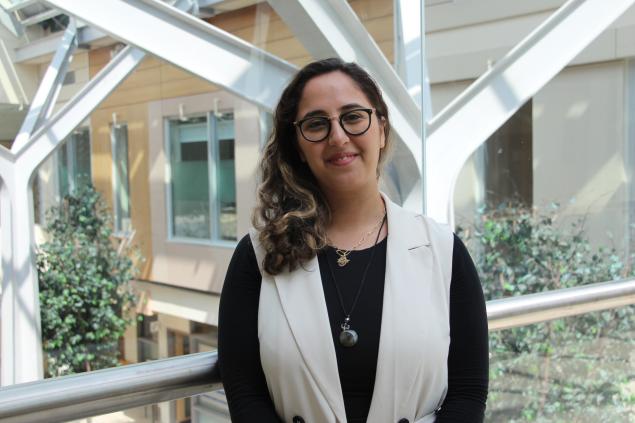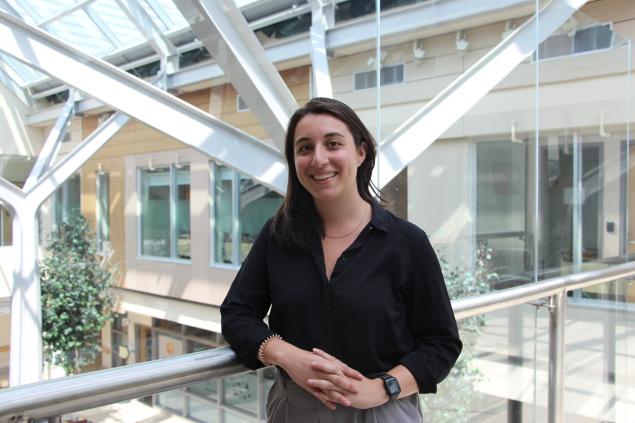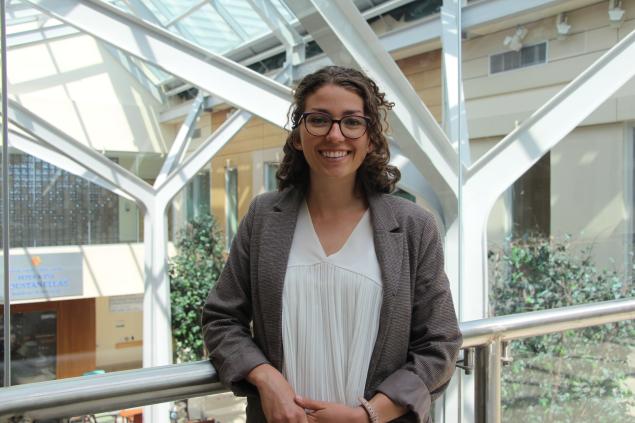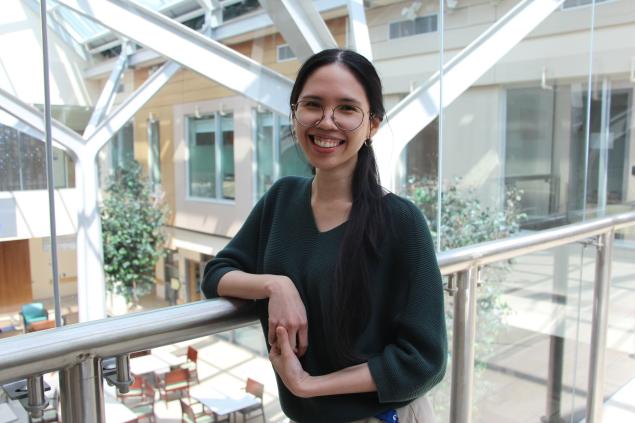The Royal has a long history of offering high quality, accredited Psychology residency training across its various clinical programs.
The Royal’s residency program has evolved from a consortium with The Rehabilitation Centre (until 2005) and was accredited by the Canadian and American Psychological Associations (CPA and APA) in 2006 to span the period of 2005 (its inception) to 2013. A CPA accreditation site visit occurred in the summer of 2013. CPA re-accreditation was granted for a period of seven years from 2012-13 until 2019-2020. In the fall of 2019, we entered the CPA re-accreditation cycle. A site visit was scheduled for spring 2020 but was postponed due to the COVID-19 pandemic. A virtual site visit was completed in January 2021. In June 2021, The Royal received formal notification from CPA that the residency program secured a six-year reaccreditation term from 2020-21 to 2026-27.
For more information on CPA accreditation, please contact the accreditation office. The CPA head office is located at 141 Laurier Avenue West, Suite 702, Ottawa, Ontario, K1P 5J3.
The Royal is located on the traditional territories of the Algonquin Anishinabe, Wendat, Anishinaabeg, Haudenosaunee Nation, and Mohawk nations.
The Royal provides a full range of mental health services to the residents of the Champlain region and other areas of Eastern Ontario, Western Quebec and Nunavut.
Services and training opportunities are available across The Royal’s three campuses, including the main campus (Ottawa), Carlingwood, and the Brockville Mental Health Centre (BMHC). The Royal provides generalist predoctoral training in a tertiary mental health care setting. The residency program adheres to the scientist-practitioner model of training and practice.
For the 2025-26 residency year, The Royal is offering three unique tracks with one position available (a total of three positions).
Each track represents the clinical program in which a resident will complete their primary rotation (two days/week for the duration of the year). Secondary rotations (two six-month rotations each one day/week) are assigned after the APPIC Match. Secondary rotation assignments are based on resident interest and the pool of available secondary rotations.
Tracks for the 2025-26 residency year:
Secondary rotations will be available in the following clinical programs for the 2025-26 residency year:
*Flex time is to be used at the resident’s discretion, which can be used for work including Grand Rounds, seminar, hospital committee duties, or additional clinical work.
****Resident group day
Three Fridays a month are devoted to the following activities:
One Friday each month is an “unscheduled work day” which can be used for various clinical, evaluation research and/or professional development/educational activities.
Residents receive a stipend of $45,000.00 per annum that includes:
* Professional development leave can be used for various activities including dissertation work or meetings, attending workshops or conferences or other professional development activities
This stipend is subject to employment insurance and tax deductions. Canadian residents have provincial health benefits. Basic Ontario Health Care Insurance requires three months of residence within the province of Ontario prior to taking effect. Extended health care benefits covering prescription drugs, dental, vision and paramedical coverage are the responsibility of the Resident.
Residents are required to obtain professional liability insurance. Liability insurance coverage provided by academic institutions is accepted.
Please note: Successful residents will be required to have a clear criminal reference check (for the vulnerable sector) dated within six months prior to their start date.
In addition, to ensure the pace of resident workload promotes quality learning experiences, one Friday per month is considered an “unscheduled work day” which residents may use to work on various core requirements, complete readings related to rotations or evaluation research or catch up on rotation-specific workload.
The Royal is welcoming applications to the following three tracks for the 2025-2026 residency year:
Applicants are welcome to apply to as many tracks as they would like, indicating their tracks of interest in one cover letter (please do not include your rank order preference of tracks).
Applications should include:
*Applicant interviews will be between January 13 – 24, 2025.
All positions in The Royal’s psychology residency program are filled in accordance with the Association of Psychology Postdoctoral and Internship Centers' (APPIC) process and policies. Our residency program agrees to abide by the APPIC policy that no person at this training facility will solicit, accept or use ranking-related information from any applicant.

If you have further questions, please review our frequently asked questions below. If you still can’t find what you’re looking for, please contact Dr. Philip Grandia, Director of Training at The Royal at philip.grandia@theroyal.ca or contact our program coordinator at (613) 722-6521 ext. 7135.
The only required forms are the APPIC application and the cover letter. Please see the section on the Application Procedure for information required in the cover letter
A multi-step review and ranking process is used.
First, we review all applications to ensure all entry criteria are met.
Second, a pair of raters (comprised of training faculty and current residents) rate the written application and assign it a numeric score (based on specific criteria and fit to our program). All applications are then rank-ordered based on the assigned score. This ranking determines who will be invited for an interview.
Third, applicants are invited for an interview. For the 2025-26 APPIC cycle, interviews will be completed January, 2025. Details are outlined in the brochure. Additional information about the interview process is located below. Standardized interviews are conducted by a panel and assigned a score. Applicants are then rank-ordered based on the score of their written application + the score of their interview and a final ranking list is developed and submitted to APPIC. Care is taken to ensure no conflicts of interest exist between assigned raters and applicants.
As per CPA standards, the minimum hour requirement is 600 hours, which must include 300 direct and 150 supervision hours.
As per the process noted above, if you are selected for an interview, you will be contacted by the residency program coordinator on December 6, 2024. Interviews scheduled for January 2025 will be conducted virtually by a panel consisting of two faculty members. We make every effort for applicants to be interviewed by training faculty who represent tracks and rotations of interest. The interview day for January 2025 also includes a virtual orientation session provided by the director and/or assistant director of training, and a virtual meeting with current residents. There are also opportunities to speak to other training faculty outside of the interview process.
At a minimum, residents receive four hours of supervision per week from registered clinical psychologists. Individual supervision includes face-to-face supervision, and on some rotations, may be complemented with group supervision. Supervision occurs each week in both primary and secondary rotations. Supervision also includes administrative (0.5 hours per week) and group supervision (one hour per week) with the director of training, assistant director or another faculty member.
Each of the three tracks at The Royal represents the clinical program in which the matched applicant will complete their primary rotation. Secondary rotations are assigned after the APPIC Match and are based on resident interest and the pool of available secondary rotations.
Supervisors for primary rotations (tracks) and secondary rotations will be identified prior to the January 2025 interviews. This information will be available to applicants at that time.
There is discussion with the resident and both primary and secondary supervisors to see what days (Monday-Thursday) have the most requirements for residents (e.g., team meetings, groups) in each rotation. Fridays are dedicated as non-clinical days, and include seminars, group supervision, and program admin.
During the orientation process, residents will be together each day. Following this two-week period, residents will typically spend each Friday together (virtual or in-person).
Some residents are together in a specific rotation and may have more contact with one another. Residents also have the opportunity to come together with other residents from Ottawa residency programs through monthly citywide seminars.
Evaluation research experience is increasingly a requirement in the job market and many of our graduates tell us that they used the skills gained on residency in their employment. The evaluation research requirement is flexible across the range of evaluation methodologies (such as needs assessments, program development and formative or summative evaluations) to fit residents’ interests. Most residents do not come with formal evaluation research experience but are provided didactic seminars and ongoing supervision to develop the projects, evaluate the report and guide its dissemination. Common components of the project include meetings with stakeholders and producing a written evaluation research report.
Residents complete evaluation research projects in pairs, and various topics are provided by the program at the beginning of the year. In most cases, residents will work with a separate supervisor on this project, and time is dedicated towards working on the project on residents’ flex day.
The Royal has two main campuses—one in Ottawa and one in Brockville. The main Ottawa campus at 1145 Carling Avenue houses most programs. Residents working at the main campus will be required to pay for parking.
The Carlingwood campus, located at the Carlingwood Shopping Centre in Ottawa (located 4 km west of the main campus) houses the Community Mental Health Program, the Transitional Aged Youth service, and other services. Residents working out of the Carlingwood campus can use the shopping centre parking lot at no additional cost.
Residents each have their own office at The Royal’s main campus. Each resident office is equipped with a laptop with a webcam/external webcam, an ergonomic height adjustable desk and an ergonomic chair. Residents working at satellite sites may be assigned a shared office/cubicle space within that program’s location.
In addition to clinical activities in the primary and secondary rotations, residents are required to complete an evaluation research project, participate in a hospital committee, supervise a student, deliver a Grand Rounds presentation and attend seminars.
Residents are provided with a core requirement form to track the completion of requirements throughout the year, both clinical and additional.
Aside from the evaluation research project, there are no research-oriented core requirements in The Royal’s residency program.
While the number of residents who choose to work at The Royal after their residency varies from year to year, it is most often the case that one or two residents stay at The Royal post-residency. Of course, many residents choose to return to their home province for post-residency ventures, to begin work in private practice, choose academia or to work in other institutions like The Royal.
As the capital of Canada, Ottawa is a city full of culture. During the summer, the city is vibrant with numerous festivals, including the Tulip Festival, Bluesfest, Folkfest and the Dragonboat Festival. During the winter, Winterlude is a main attraction, as well as the Rideau Canal Skateway (the largest outdoor rink in the world!). Residents have appreciated the connection to Canadian culture through numerous museums and cultural sites, as well as Parliament Hill.
Aya Cheaito is a doctoral candidate in clinical psychology at the University of Vermont. She is completing a primary rotation with Operational Stress Injury Clinic, and secondary rotations in the Centralized Neuropsychology Service, and Ontario Structured Psychotherapy Program. Her dissertation research explores the structural brain correlates of child emotion dysregulation. Aya is looking forward to learning neurocognitive testing and PTSD long-exposure treatment while at The Royal.

Sandra Krause is a doctoral candidate in clinical psychology at Concordia University. She is completing a primary rotation with the Operational Stress Injury Clinic and secondary rotations in the Ontario Structured Psychotherapy Program and the Secure Treatment Unit.
Her dissertation research looks at the relationship between trauma and obsessive-compulsive disorder symptoms. Specifically, she explored the factors that drive a specific subset of contamination symptoms that are triggered by moral violations rather than by contact with physical contaminants like dirt or germs.
Sandra is looking forward to learning specialized psychotherapeutic approaches to working with trauma and expanding her intervention skills to new and complex populations.

Bronwyn O’Brien is a doctoral candidate in clinical psychology at the University of Ottawa. She is completing a primary rotation with the Transitional Aged Youth Service and secondary rotations in the Community Mental Health Program and the Operational Stress Injury Clinic.
Her dissertation research examines the impact of temporal distance on young children’s future thinking. In other words, do young children think about the near and distant future differently, and how does this impact their future-oriented reasoning and behaviour?
While at The Royal, Bronwyn is looking forward to deepening her knowledge of evidence-based assessment and intervention with individuals with complex mental health concerns, particularly those from underserved groups. She also aims to grow her competence in working effectively on an interdisciplinary team, working with diverse client groups and providing supervision.

Danielle Uy is a doctoral candidate in clinical psychology at Toronto Metropolitan University. She is completing her primary rotation in the Mood and Anxiety and Ontario Structured Psychotherapy programs. Her secondary rotations are in the Substance Use and Concurrent Disorders Program (TAY Service) and the Community Mental Health Program.
For her dissertation, Danielle is investigating psychosocial predictors of internet gaming disorder using both survey and experimental methods. She is especially interested in understanding the role of behavioural engagement in nongaming activities in predicting symptom severity and craving in a sample of adult video game players who spend significant amounts of time gaming per week.
For her residency, Danielle is looking forward to learning more about tertiary mental health care and the different roles that psychology can fill in hospital settings (e.g., consultants, supervisors, program evaluation researchers). She is also excited to hone her skills in treatment and assessment, particularly within the context of treatment-resistant illnesses, multiple comorbidities and other complexities in adult populations. With respect to presenting concerns, Danielle is interested in working with clients presenting with mood, anxiety, OCD, trauma, emotion dysregulation and concurrent disorders.

1145 Carling Ave.,
Ottawa, ON K1Z 7K4
(613) 722-6521
1141 Carling Ave.,
Ottawa, ON K1Z 7K4
(613) 722-6521
1804 Highway 2 E, P.O. Box 1050,
Brockville, ON K6V 5W7
(613) 345-1461
2121 Carling Ave.,
Ottawa, ON K2A 1H2
(613) 722-6521
We use cookies to improve your experience on our website. To learn more, read our privacy policy.